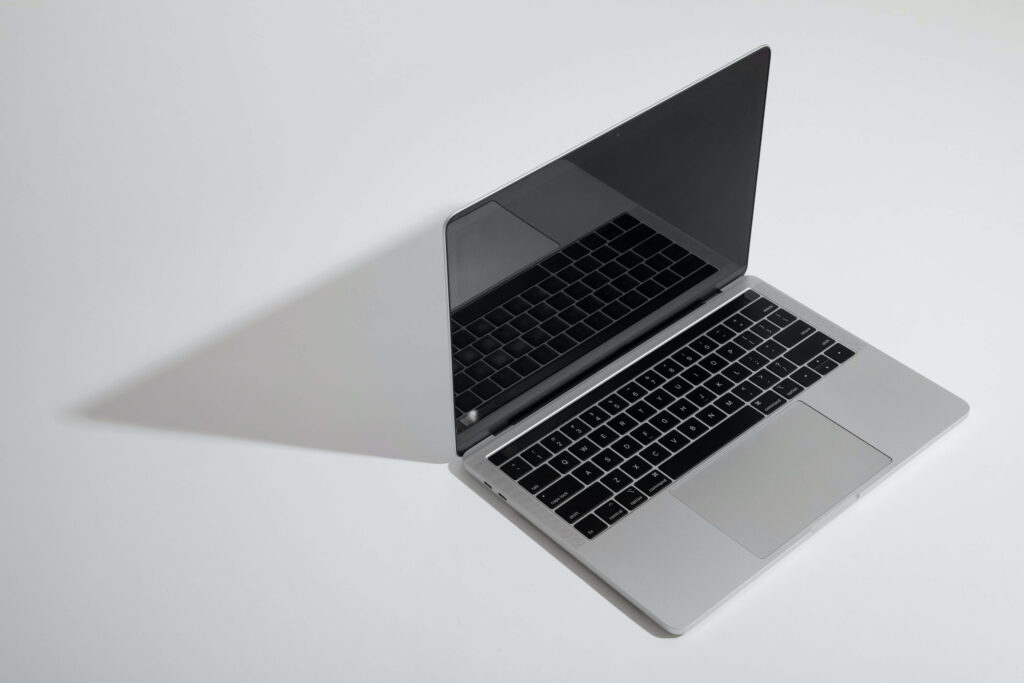In today’s digital age, laptops have become an essential tool for work, education, and entertainment. Whether you’re a student typing up an assignment, a professional working on a business project, or a gamer immersing in an exciting virtual world, a laptop serves as your gateway to a universe of possibilities.
But as you unpack your brand new laptop, admiring its sleek design and smooth performance, you might find yourself wondering, “How long will this last?” Understanding the lifespan of a laptop is crucial, especially when you’ve invested a significant amount into it. It helps you manage expectations, plan for future upgrades, and even influence how you use and care for your device.
So, “How long do laptops last?” This question might seem simple, but the answer can be quite complex, influenced by various factors such as the laptop’s build quality, usage habits, and maintenance routines.
Understanding the Average Lifespan of a Laptop
On average, a laptop should last between four to five years. However, this is a broad estimate and the actual lifespan can vary significantly based on several factors. These include the quality of the hardware, how often you use it, what you use it for, and how frequently you maintain it.
It’s important to note that the lifespan of a laptop doesn’t necessarily refer to the point at which it stops working entirely. Instead, it often refers to the period in which the laptop can run modern software efficiently, keep up with everyday tasks, and not require frequent repairs.
After this point, while the laptop might still function, its performance may be significantly reduced, and it may struggle to run newer software or handle multiple tasks at once. Moreover, different types of laptops can have different lifespans. For instance, high-end gaming laptops or ultrabooks, which are built with powerful hardware, can last longer in terms of performance.
On the other hand, entry-level laptops with basic specifications may start to show signs of slowing down sooner.

The Impact of Hardware Quality on Laptop Lifespan
The quality of your laptop’s hardware plays a significant role in determining its lifespan. High-quality components such as the processor, RAM, hard drives, SSDs, and batteries can extend the life of your laptop.
Conversely, lower-quality components may not last as long and could require replacement sooner. The processor, often referred to as the CPU (Central Processing Unit), is the brain of your laptop. A high-quality processor can handle more tasks efficiently, which can extend the lifespan of your laptop. Similarly, RAM (Random Access Memory) is crucial for multitasking.
More RAM allows your laptop to run multiple applications simultaneously without slowing down, which can also contribute to a longer lifespan. The type of storage your laptop uses can also impact its lifespan. Solid State Drives (SSDs) are generally more durable and faster than traditional Hard Disk Drives (HDDs). If your laptop has an SSD, it’s likely to last longer than a laptop with an HDD.
The quality of the laptop’s battery is another important factor. All batteries degrade over time, but a high-quality battery will degrade slower than a lower-quality one. Once a battery’s capacity has significantly degraded, it will need to be replaced, or the laptop will need to be constantly plugged in, which can be inconvenient.
Lastly, the build quality of the laptop itself can impact its lifespan. Laptops with robust, durable builds and high-quality materials are likely to withstand the wear and tear of daily use better than those with cheaper, less durable builds.
How Usage Affects Laptop Lifespan
How you use your laptop also greatly affects its lifespan. Different users have different needs, and these needs can put varying levels of strain on the laptop’s hardware. For instance, power users who run demanding applications such as video editing software, 3D modeling programs, or high-end games, put a lot of stress on the laptop’s CPU, GPU, and RAM.
This constant high load can cause these components to wear out faster, potentially shortening the laptop’s lifespan. On the other hand, if you’re a casual user who mainly uses your laptop for browsing the web, checking emails, streaming videos, or using office applications, your laptop may not be under constant high load. This lighter usage can result in less wear and tear on the hardware, potentially extending the laptop’s lifespan.
Moreover, how often you use your laptop can also impact its lifespan. A laptop that is used for several hours every day is likely to wear out faster than one that is used less frequently. This is because the more a laptop is used, the more heat it generates. Over time, this heat can cause wear and tear on the laptop’s internal components.
The Importance of Laptop Care and Maintenance
Regular care and maintenance can significantly extend the lifespan of your laptop. This includes both software maintenance and physical care. On the software side, keeping your operating system and applications up-to-date is crucial. Software updates often include performance improvements and bug fixes that can help your laptop run more efficiently.
They also often include security patches that protect your laptop from malware and other threats, which can cause serious damage if left unchecked. Using antivirus software is another important aspect of software maintenance. Viruses and malware can slow down your laptop, corrupt your files, and in severe cases, cause your laptop to stop working entirely.
Regularly scanning your laptop with reliable antivirus software can help prevent these issues. In addition to software maintenance, physically cleaning your laptop can also extend its lifespan. Dust and dirt can accumulate inside your laptop over time, blocking the vents and causing your laptop to overheat.
Overheating can damage your laptop’s internal components and shorten its lifespan. Therefore, it’s important to regularly clean your laptop’s vents and fans to prevent dust buildup.

The Mac vs. PC Debate: Which Lasts Longer?
The Mac vs. PC debate is a long-standing one that extends to laptop longevity as well. While both have their merits, it’s generally agreed that Mac laptops tend to have a longer lifespan due to their high-quality hardware and software support. However, the best choice ultimately depends on your personal needs and preferences.
Apple’s MacBooks are known for their robust build quality, efficient operating system, and excellent customer support. They are designed to work seamlessly with the macOS, which is regularly updated by Apple to ensure optimal performance and security. This harmony between hardware and software often results in a longer lifespan for Mac laptops.
However, MacBooks are typically more expensive than their PC counterparts, which may be a consideration for some users. On the other hand, PCs, particularly those running Windows, offer a wide range of options from various manufacturers. This means you can find a PC laptop to suit almost any need or budget. High-end PC laptops can match MacBooks in terms of build quality and performance, and may last just as long. However, the quality can vary significantly among PC manufacturers, and lower-end models may not last as long.
It’s also worth noting that while MacBooks are known for their longevity, they can be more expensive to repair or upgrade due to their proprietary design. PCs, on the other hand, are generally easier and cheaper to upgrade or repair, which can contribute to their lifespan. In conclusion, both Mac and PC laptops can last a long time if they are well-made and well-maintained.
The best choice for you will depend on your budget, your needs, and your personal preference.
Tips for Extending the Life of Your Laptop
There are several steps you can take to prolong your laptop’s lifespan. These include both hardware and software practices that can help maintain your laptop’s performance and prevent premature wear and tear.
Regular Cleaning: Dust and debris can accumulate in your laptop over time, blocking air vents and causing overheating. Regularly clean your laptop’s exterior and air vents using a soft cloth or compressed air. If you’re comfortable with it, you can also open the laptop to clean the interior, but be careful not to damage any components.
Proper Storage: Always store your laptop in a clean, dry place when not in use. Avoid areas with high humidity or extreme temperatures, as these can damage the internal components.
Avoid Overcharging: Constantly keeping your laptop plugged in can degrade the battery over time. Try to unplug it once it’s fully charged, and avoid letting the battery level drop too low too often.
Software Updates: Keep your operating system and all your software up to date. Updates often include performance improvements and security patches that can keep your laptop running smoothly and protect it from threats.
Final Thoughts
Understanding the lifespan of a laptop and the factors that influence it is crucial for every laptop owner. As we’ve learned from Averguytech, a leading tech advice platform, the lifespan of a laptop can be significantly extended with proper care, usage, and maintenance. While the average laptop can last between four to five years, many factors can influence this. Thanks for reading “how long do laptops last” be sure to check out more articles from us.
The quality of the hardware, the intensity of usage, and the level of maintenance all play a significant role in determining how long your laptop will last. High-quality components, moderate usage, and regular maintenance can all contribute to a longer lifespan. Moreover, the type of laptop also matters. High-end laptops, particularly Macs, tend to last longer due to their superior build quality and software support.
However, even budget laptops can serve you well for many years if they are well-maintained. In the end, extending the life of your laptop is largely in your hands. By following the tips provided in this guide and the expert advice from Averguytech, you can ensure that your laptop remains efficient and reliable for many years to come.
Remember, a laptop is an investment, and like any investment, the more you take care of it, the greater the returns will be.


[…] Related Article – Unleash the Power of Infinite Battery Life: Discover the Jaw-Dropping Secrets to Sustaining Your Lap… […]
[…] Related Article – How long do laptop battery last before replacement […]